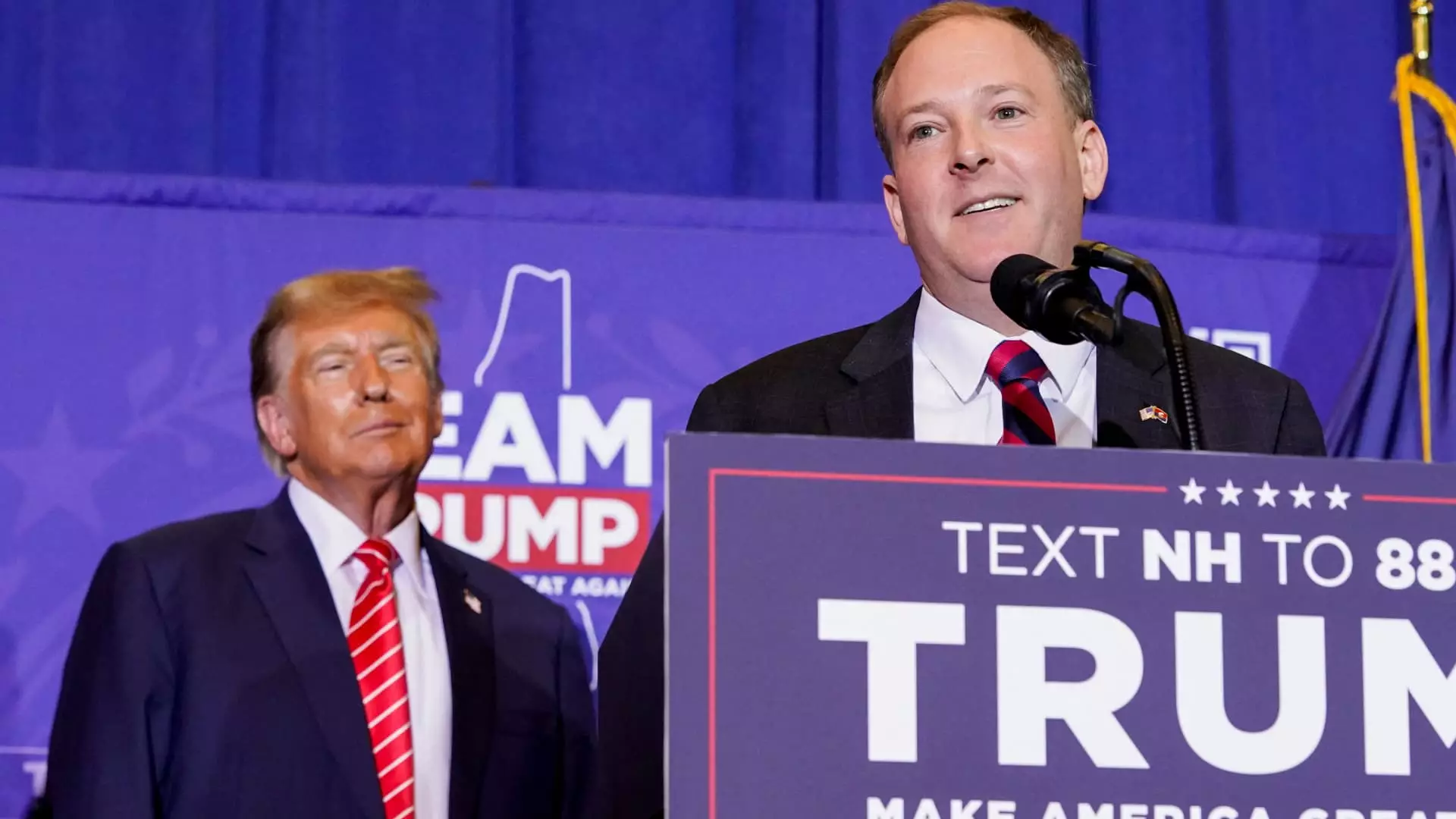The recent announcements made by President-elect Donald Trump concerning key cabinet positions illustrate his commitment to implementing a particular form of governance that emphasizes deregulation and a corporate-friendly environment. By selecting former Rep. Lee Zeldin as the administrator of the Environmental Protection Agency (EPA) and current Rep. Elise Stefanik as the U.S. ambassador to the United Nations, Trump underscores a shift towards policies that are deeply entrenched in conservatism and a reduction in government oversight of businesses, particularly in environmental matters.
Lee Zeldin: The New Face of Environmental Regulation
Lee Zeldin’s appointment as the EPA administrator has drawn considerable backlash, especially from environmental groups. Zeldin, a former congressman from New York, has a record that showcases his preference for policies that critics describe as harmful to environmental standards. Trump asserts that Zeldin embodies the archetype of a representative dedicated to “America First” policies, indicating a pledge to enhance American business capabilities. However, it is imperative to consider the implications of Zeldin’s legislative history, notably his low rating from the League of Conservation Voters, which reflects a consistent trend of opposing environmental protections.
In Zeldin’s own words, his agenda will entail a substantial rollback of regulations that he claims hinder business activities. While the promise to restore “U.S. energy dominance” and prioritize clean air and water sounds appealing, it raises fundamental questions about the veracity of such assertions. In practice, this rhetoric could lead to weakened regulations, potentially endangering public health and natural resources in favor of short-term economic gain.
Importantly, Zeldin’s proclamation of revitalizing the American auto industry and leading in artificial intelligence suggests a broader economic strategy. However, it begs further examination of how these goals align with maintaining environmental safeguards. His anticipated actions as the head of the EPA will undoubtedly shape the trajectory of the nation’s environmental policies, influencing everything from air quality standards to climate change initiatives. Skepticism surrounds whether real progress can be made in sustainability under Zeldin’s leadership.
Alongside Zeldin, Elise Stefanik’s appointment to the United Nations is equally telling. Stefanik has positioned herself as a loyal supporter of Trump, being the first Republican Congress member to endorse him. Her experience as the chair of the House Republican Conference, coupled with her work on the House Armed Services and Intelligence Committees, paints her as a formidable choice for addressing matters of national security and international relations.
Trump’s assertion that Stefanik will promote “Peace through Strength” reflects a continuation of his administration’s foreign policy strategy that favors military readiness and American exceptionalism. However, Stefanik’s selection raises concerns regarding potential shifts in U.S. foreign policy—especially at an institution like the UN where diplomacy and multilateral agreements often take precedence over unilateral actions.
Considering the current political landscape, Stefanik’s role could also affect the Republican presence in the House of Representatives. The GOP is poised precariously, and her departure could shift the dynamics within the party. With the Republicans currently holding the House majority but facing scrutiny as the 2025 elections approach, her appointment could become a double-edged sword, affecting domestic and foreign policymaking.
The selections of Zeldin and Stefanik by Trump signal a broader intention to promote policies that prioritize business interests over environmental and humanitarian concerns. Critics have responded vehemently, suggesting that such choices represent a retreat from necessary environmental protections and a disregard for the global obligations that accompany leadership roles in organizations like the UN. As we advance, the American public will need to scrutinize these appointments closely, assessing their long-term effects not just on American industry but also on the health of the planet and the nation’s standing in the international community.
The clearest takeaway from these appointments is that they encapsulate a future under Trump that values deregulation, skepticism towards environmental advocacy, and a strong military stance. As the new administration takes shape, it remains to be seen how these initial moves will play out in the broader context of American politics and global engagement. The unfolding scenario poses pressing questions about the balance of interests between corporate America, environmental stewardship, and international diplomacy—one that will need vigilant examination in the coming years.

